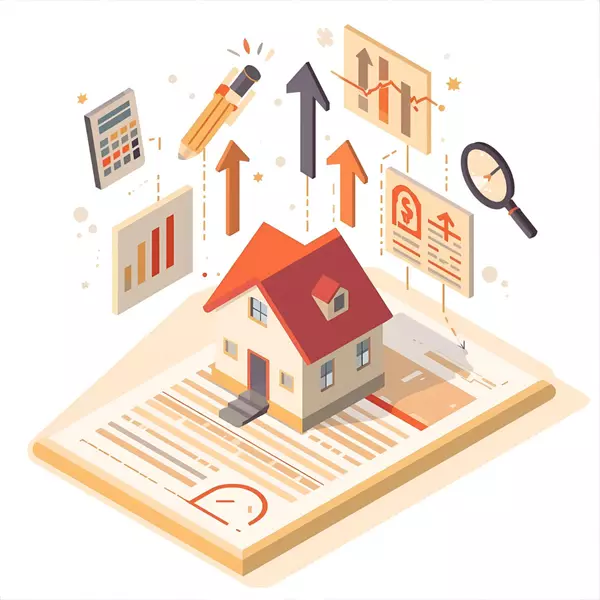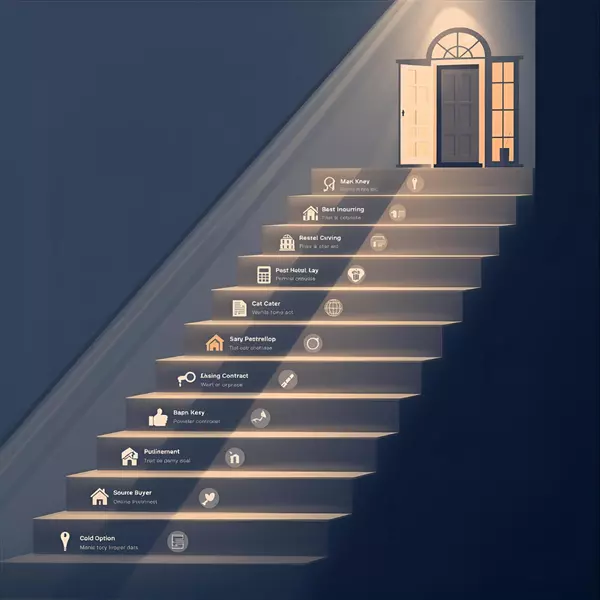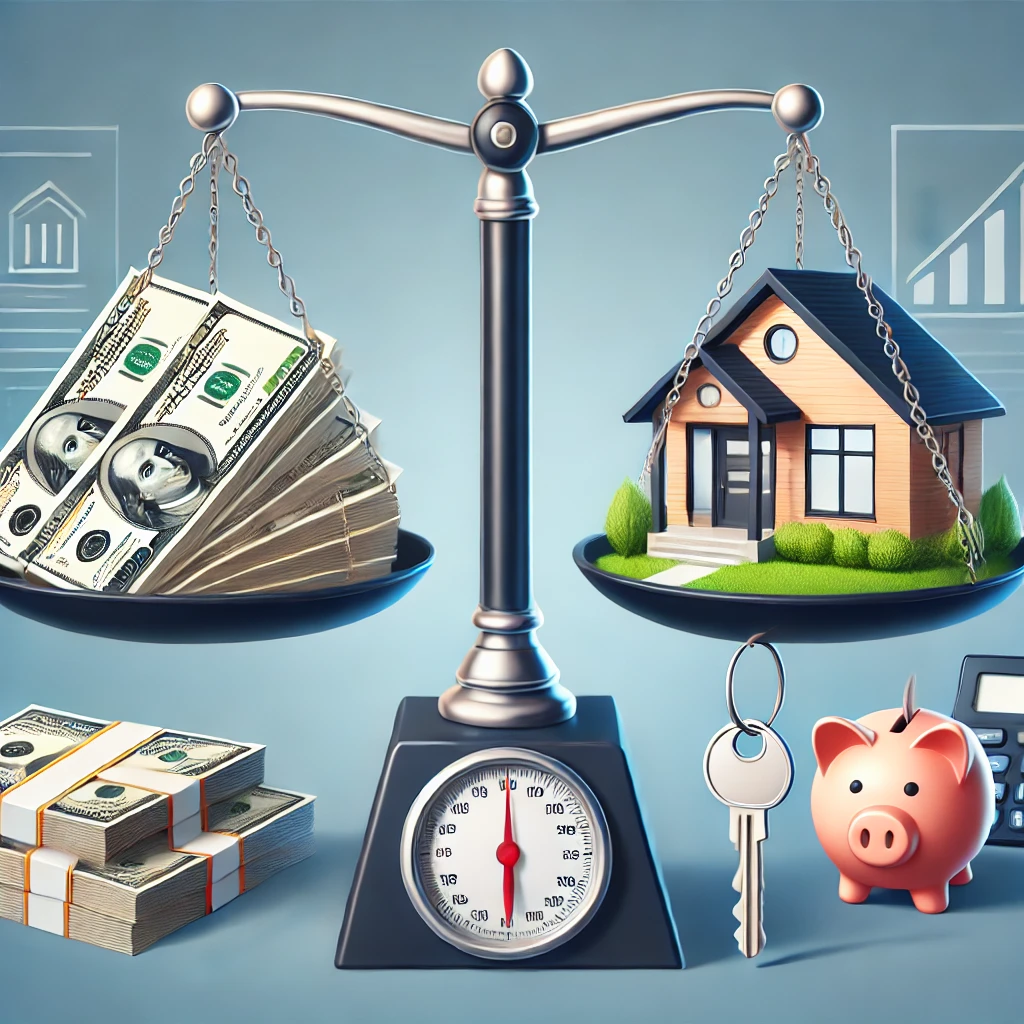Cash vs. Loan: Choosing the Best Option for Your Next Home
Cash vs. Loan: Choosing the Best Option for Your Next Home
Introduction: A Critical Financial Decision
When it comes to buying a home, one of the biggest decisions you’ll face is how to pay for it: 💵 cash or 🏦 loan? Both options have their benefits and drawbacks, and the right choice depends on your financial situation, long-term goals, and the current market conditions. Making the wrong decision could cost you thousands of dollars or limit your financial flexibility. In this blog, I’ll break down the pros and cons of paying in cash versus using a loan, share actionable advice, and help you determine which option is best for you.
Why the Decision Matters
💰 Financial Impact
- The choice between cash and loan affects your liquidity, investment opportunities, and overall financial health.
- Example: A buyer who pays cash might feel secure owning a home outright but could struggle with liquidity in emergencies. Conversely, a buyer who uses a loan may benefit from leverage but risks overextending themselves.
- 💬 “How you finance your home isn’t just a numbers game; it’s a strategy that shapes your financial future.” — Suze Orman
🧘 Emotional Considerations
- This decision is as much about peace of mind as it is about financial strategy.
- Some buyers feel more comfortable being debt-free, while others see debt as a tool for building wealth.
The Pros and Cons of Paying in Cash
✅ Pros of Paying in Cash
- No Monthly Payments: Eliminates the stress of a monthly mortgage and frees up cash flow for other expenses.
- Stronger Negotiation Power: Sellers often prefer cash offers because they close faster and come with fewer contingencies.
- Example: In a competitive market, a cash buyer’s offer might win over a higher offer that depends on loan approval.
- Interest Savings: Avoid paying thousands in interest over the life of a loan.
- Faster Closing Process: With no lender involved, closing can take as little as 7-10 days.
❌ Cons of Paying in Cash
- Liquidity Risk: Tying up all your money in a home can leave you unprepared for emergencies.
- Opportunity Cost: The cash spent on a home could be invested elsewhere for potentially higher returns.
- Example: Investing $400,000 in the stock market with an average return of 7% could yield over $800,000 in 10 years.
- Lack of Leverage: Real estate allows you to use borrowed money to control a larger asset. Paying cash forfeits this advantage.
The Pros and Cons of Using a Loan
✅ Pros of Using a Loan
- Preserve Liquidity: Keep cash available for emergencies, investments, or other financial goals.
- Example: By financing a $400,000 home with 20% down, you retain $320,000 for other uses.
- Leverage: Borrowed money allows you to control a high-value asset with less upfront cash.
- 💡 Pro Tip: Use leverage wisely by ensuring the monthly payments fit within your budget.
- Tax Benefits: Mortgage interest is tax-deductible on rental properties in Canada, reducing your overall tax burden.
- Credit Building: Regular mortgage payments can improve your credit score, making future borrowing easier.
❌ Cons of Using a Loan
- Interest Costs: Over time, you could pay thousands in interest, increasing the total cost of the home.
- Monthly Financial Obligation: Mortgage payments add a recurring expense to your budget, which could become burdensome if your income changes.
- Slower Closing Process: Lenders require appraisals, credit checks, and underwriting, which can delay closing.
Factors to Consider
🎯 Your Financial Goals
- Renting vs. Investing: Are you prioritizing stability and homeownership, or do you want to maximize liquidity for other investments?
- Peace of Mind: Does being debt-free matter more than leveraging funds for growth?
📈 Market Conditions
- In a competitive market, cash offers might give you an edge.
- In a buyer’s market, financing may allow for better negotiation.
🧗 Risk Tolerance
- Are you comfortable with monthly payments, or would you rather eliminate debt completely?
🕰️ Duration of Stay
- Plan to stay in the home for at least 5-7 years to offset closing costs and potential market fluctuations.
🧮 Actionable Steps to Decide
-
Assess Your Financial Situation:
- Calculate your savings, monthly income, and expenses. Ensure you have an emergency fund before making a cash purchase.
-
Speak with a Mortgage Broker:
- Explore loan options, rates, and terms to understand your borrowing power.
-
Run Scenarios:
- Use online calculators to compare the total cost of buying with cash versus financing.
-
Discuss with Experts:
- Consult a realtor, financial advisor, and mortgage broker to weigh your options.
🌟 Tips for Making the Right Choice
- Do the Math: Calculate the long-term costs and benefits of each option.
- Think Long-Term: Consider how each choice aligns with your future plans, like retirement or other investments.
- Stay Within Your Means: Whether paying cash or using a loan, ensure your decision doesn’t strain your finances.
- Seek Professional Advice: A trusted realtor can provide market insights and help you evaluate the best strategy.
Conclusion: Making the Best Choice for You
Choosing between paying cash or using a loan to buy your next home is a deeply personal decision. By understanding the pros and cons of each option, assessing your financial goals, and consulting with experts, you can make an informed choice that supports your lifestyle and future plans.
Call me at (306) 370-6179, or connect with me on Instagram, Facebook, or LinkedIn. Let’s find the best way to secure your dream home!
Categories
Recent Posts










GET MORE INFORMATION


